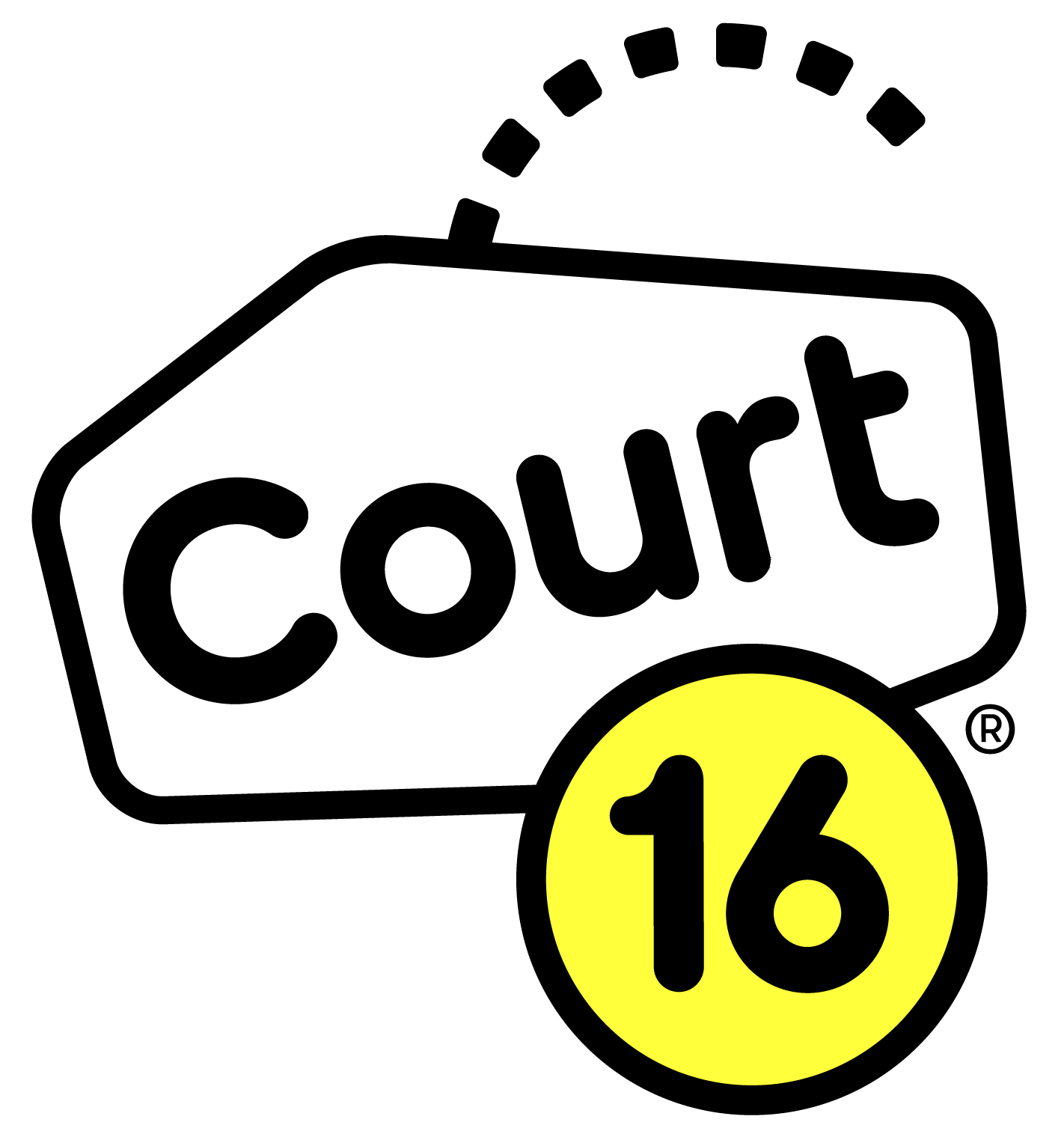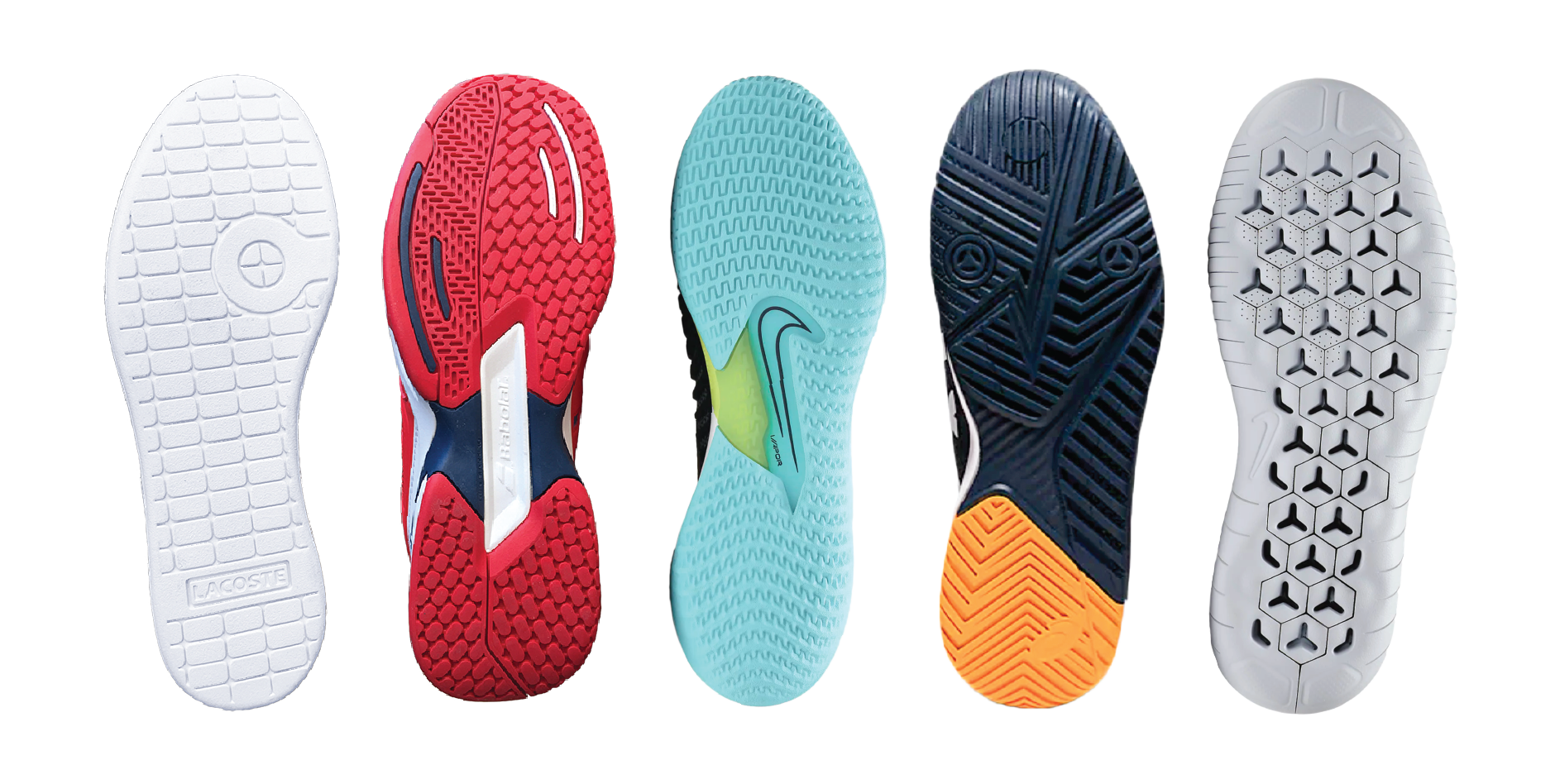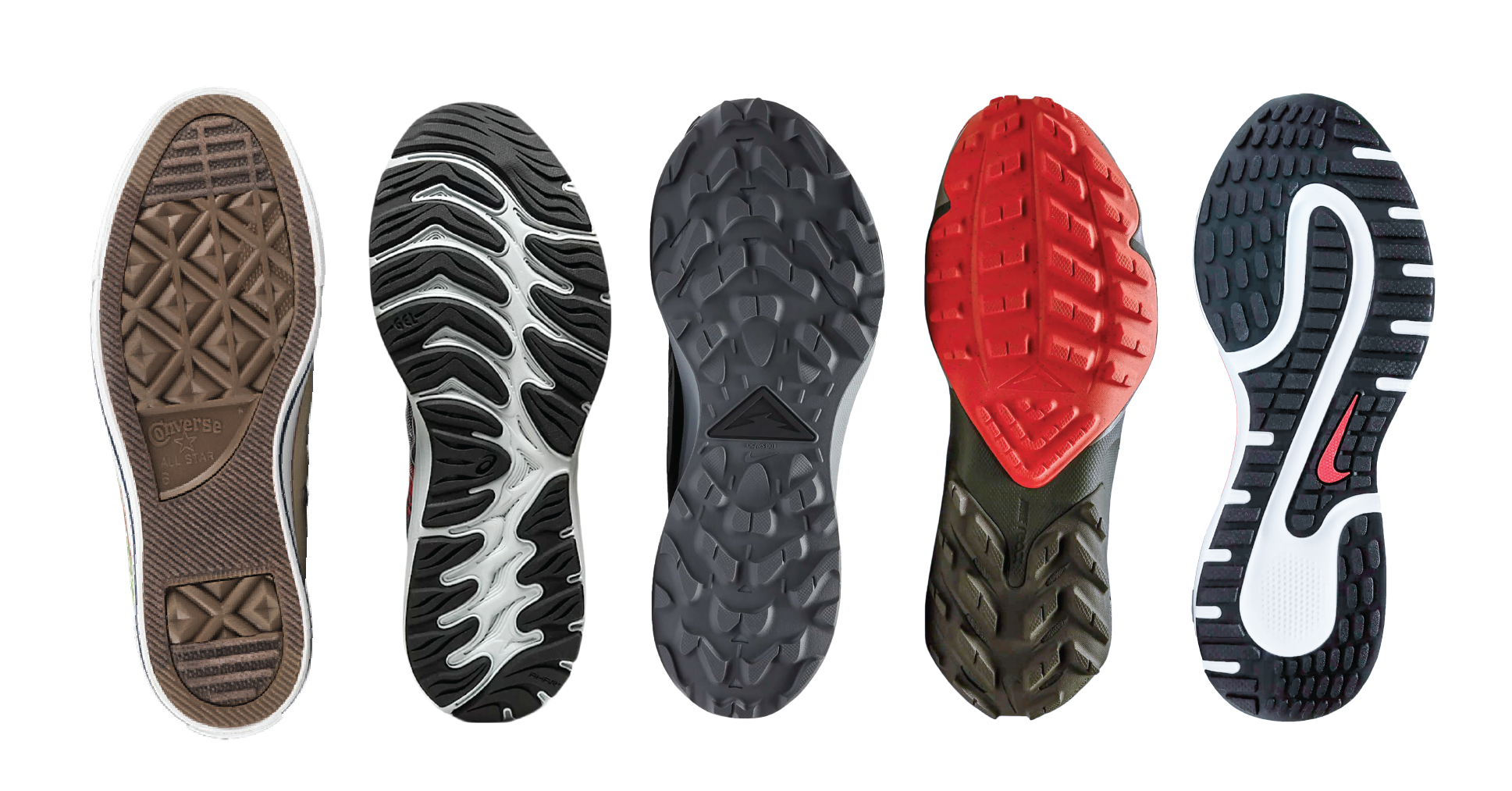Non-Marking Sole
Proper Tennis Shoes Must be Worn on the Court at All Times
Regular shoes are bound to leave marks on our tennis courts while playing as a lot of movement and pressure is involved on the court. This will end up creating scratches or shoe marks on the surface which damages the surfacing and spoils the experience. In order to tackle this, we require the use of shoes that have non-marking soles.
Non-marking shoes have flat, not-so-hard soles with no cleats and minimal texture so as not to leave a mark on the court. Most non-marking soles are non-black or white, but can be black if the texture is appropriate.
Examples of non-Marking Soles
SOFT MATERIAL WITH MINIMAL OR FLAT TEXTURE
Examples of Improper Footwear
HARD MATERIAL WITH CLEATS OR DEEP TEXTURE
Still Unsure?
Additional ways of identifying if your shoe is a non-marking shoe or not
Flip your shoe and use your fingernail to press the sole. If the sole is dented, then your shoe is most likely to be a non-marking shoe and the sole is soft and won’t cause any marks.
Take a white paper and place it on the floor. Try rubbing the shoe sole on the paper. Take the paper now and check for scuff marks. If there are no marks on the paper, then your shoe is a non-marking shoe.
— Courtesy of Sheryl Thomas






